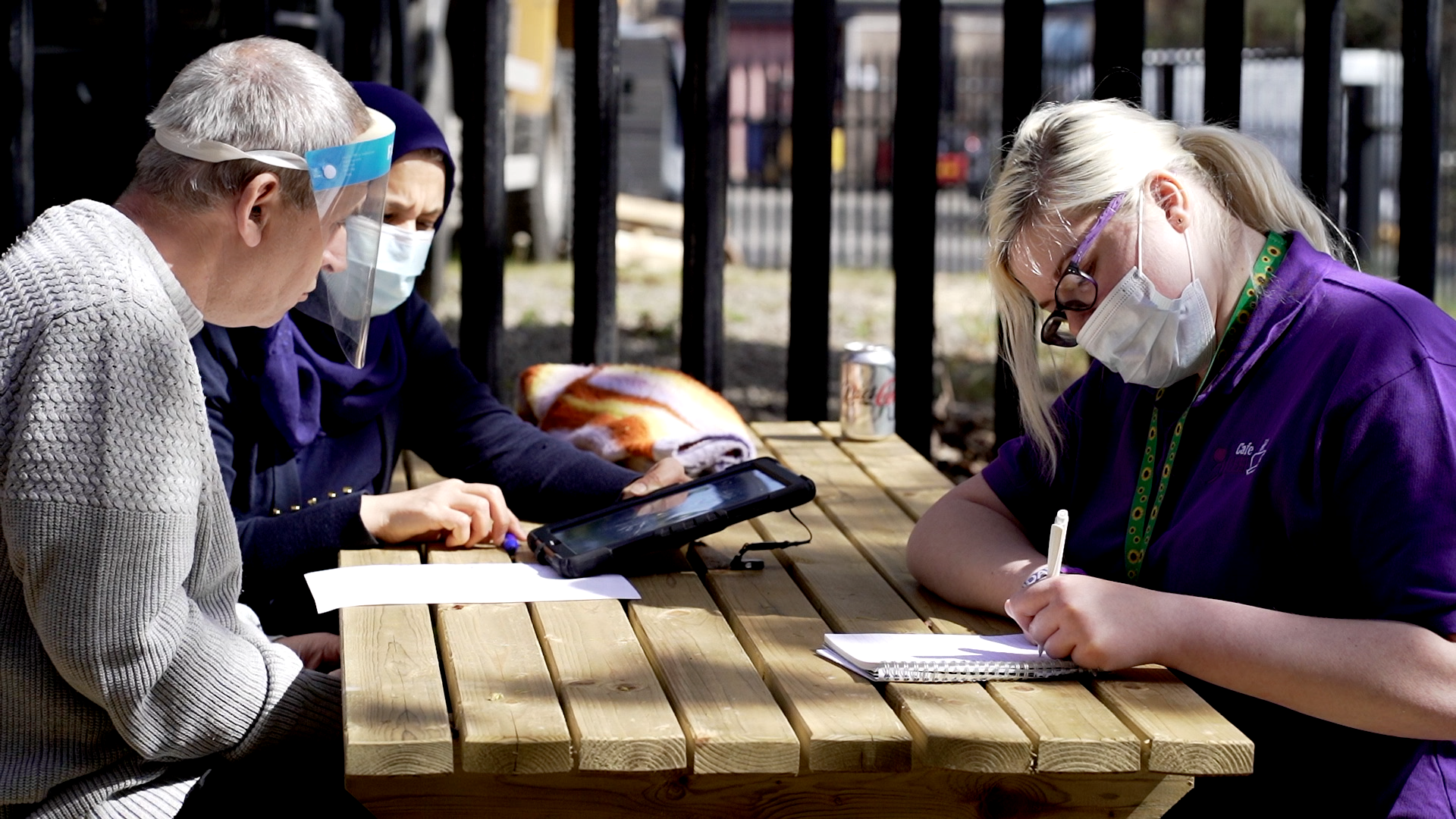Digital Lifeline for people with learning disabilities
More support is needed to extend a digital lifeline to people with learning disabilities, our Director of Evidence and Engagement, Dr. Emma Stone, writes.
Digital Lifeline was an amazing project to deliver.
Today, our evaluation report tells the story of its success, as well as sharing important lessons learned for the future. As rising costs of living put increased pressure on disabled people’s lives, the need for initiatives like this is intensifying, not going away.
Digital Lifeline was an emergency response led by Good Things Foundation. We reached 5,500 people with learning disabilities within a few months in 2021, breaking down digital exclusion barriers so people could connect, communicate and engage in opportunities which digital offers. Opportunities which many of us take for granted.
Across England, 150 different partners came together to distribute devices and data, and provide some support and assistive kit where needed. The Department of Digital, Culture, Media and Sport provided much-needed funding. It was this huge collaborative effort that meant we could reach so many people in such a short time. Collaboration was also central to our evaluation – delivered by Good Things Foundation’s researchers with RIX Social Researchers – a team of people with learning disabilities trained in peer research and supported by University of East London.
Our report brings together findings from baseline and early outcomes data collected in the first few weeks after distributing devices and support, alongside insights from qualitative research undertaken in the following months with people with learning disabilities, family members and carers, and community partners. Drawing on this data, we make recommendations for policy makers, funders, practitioners and for future programmes – including the need to:
- Promote digital inclusion for those at most risk of being left behind in the forthcoming Digital Strategy — such as disabled people and people with learning disabilities.
- Take action to reduce data poverty and address barriers to device ownership.
- Provide funding to improve the digital access, skills and confidence of family members and informal carers, as well as people with learning disabilities themselves
- Support staff and volunteers to be confident in encouraging people with learning disabilities to explore the full potential of the internet.
Last week, Learning Disability England launched a powerful new framework: Good Lives: Building Change Together. The framework has been developed in the context of the pandemic – recognising the disproportionate negative effects of the pandemic on the lives and life chances of people with learning disabilities and disabled people generally. The evidence of digital inequalities is stark. As the 3rd UK Essential Digital Skills benchmark report from Lloyds Banking Group reported last year:
- Of the 11 million people who do not have the ‘Essential Digital Skill for Life’, more than half have an impairment;
- People with multiple impairments are at the greatest risk of digital exclusion.
The Good Lives Framework includes a clear statement of belief that people with learning disabilities have ‘the right to access both technology, and support to enable them to access that technology’, and a call to action to ‘create, with others, the conditions for learning disabled people to flourish and to live their good life.’
Our Digital Lifeline evaluation shows what can be achieved together – and points to what needs to happen now for this to be sustained and scaled, so more people with learning disabilities can flourish and ‘live their good life’.
Read Emma’s latest long read: “Towards solving data poverty’.


